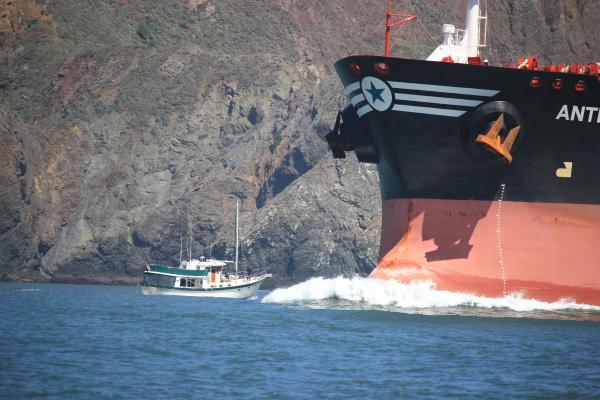So anyone who was 60 or older in 2014 was not required to get the card at all.
Dave;
Unless I am reading it wrong, there is a contradiction in the WA age exemption.
Section (3)(a) through (j) lists all the exemptions including age, then Section (4) negates Section (3)(j) Any person born before January 1, 1955.
Is that in reference to the January 1, 2016 total phase in date?
January 1, 2016 - All boat operators.
If age is no longer an exemption then there are likely a lot of WA Boomers cruising around WA and BC unaware they are, um, certifiable.
(3) The following persons are not required to carry a boater education card:
(a) The operator of a vessel engaged in a lawful commercial fishery operation as licensed by the department of fish and wildlife under Title
77 RCW. However, the person when operating a vessel for recreational purposes must carry either a valid commercial fishing license issued by the department of fish and wildlife or a boater education card;
(b) Any person who possesses a valid marine operator license issued by the United States coast guard when operating a vessel authorized by such coast guard license. However, the person when operating a vessel for recreational purposes must carry either a valid marine operator license issued by the United States coast guard or a boater education card;
(c) Any person who is legally engaged in the operation of a vessel that is exempt from vessel registration requirements under chapter
88.02 RCW and applicable rules and is used for purposes of law enforcement or official government work. However, the person when operating a vessel for recreational purposes must carry a boater education card;
(d) Any person at least twelve years old renting, chartering, or leasing a motor driven boat or vessel with an engine power of fifteen horsepower or greater who completes a commission-approved motor vessel safety operating and equipment checklist each time before operating the motor driven boat or vessel, except that an operator of a personal watercraft shall comply with the age requirements under RCW
79A.60.190;
(e) Any person who is not a resident of Washington state and who does not operate a motor driven boat or vessel with an engine power of fifteen horsepower or greater in waters of the state for more than sixty consecutive days;
(f) Any person who is not a resident of Washington state and who holds a current out-of-state or out-of-country certificate or card that is equivalent to the rules adopted by the commission;
(g) Any person who has purchased the boat or vessel within the last sixty days, and has a bill of sale in his or her possession to document the date of purchase;
(h) Any person, including those less than twelve years of age, who is involved in practicing for, or engaging in, a permitted racing event where a valid document has been issued by the appropriate local, state, or federal government agency for the event, and is available for inspection on-site during the racing event;
(i) Any person who is not yet required to have a boater education card under the phased schedule in RCW
79A.60.630(2)(a); and
(j) Any person born before January 1, 1955.
(4) Except as provided in subsection (3)(a) through (i) of this section, a boater must carry a boater education card while operating a vessel and is required to present the boater education card, or alternative license as provided in subsection (3)(a) and (b) of this section, to a law enforcement officer upon request.

